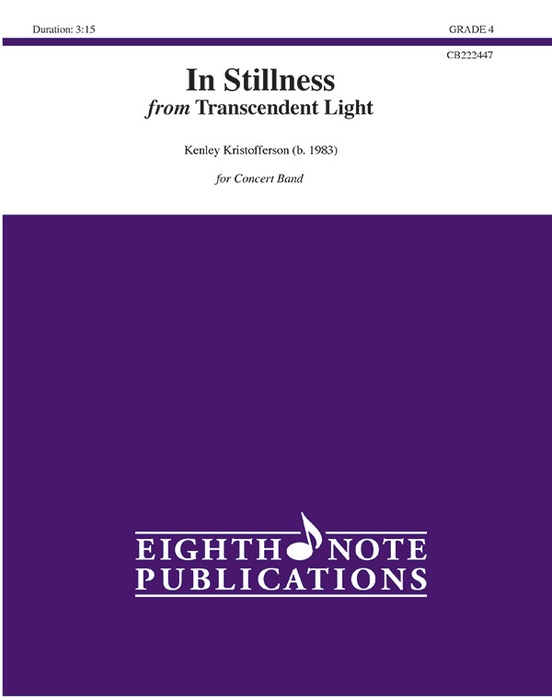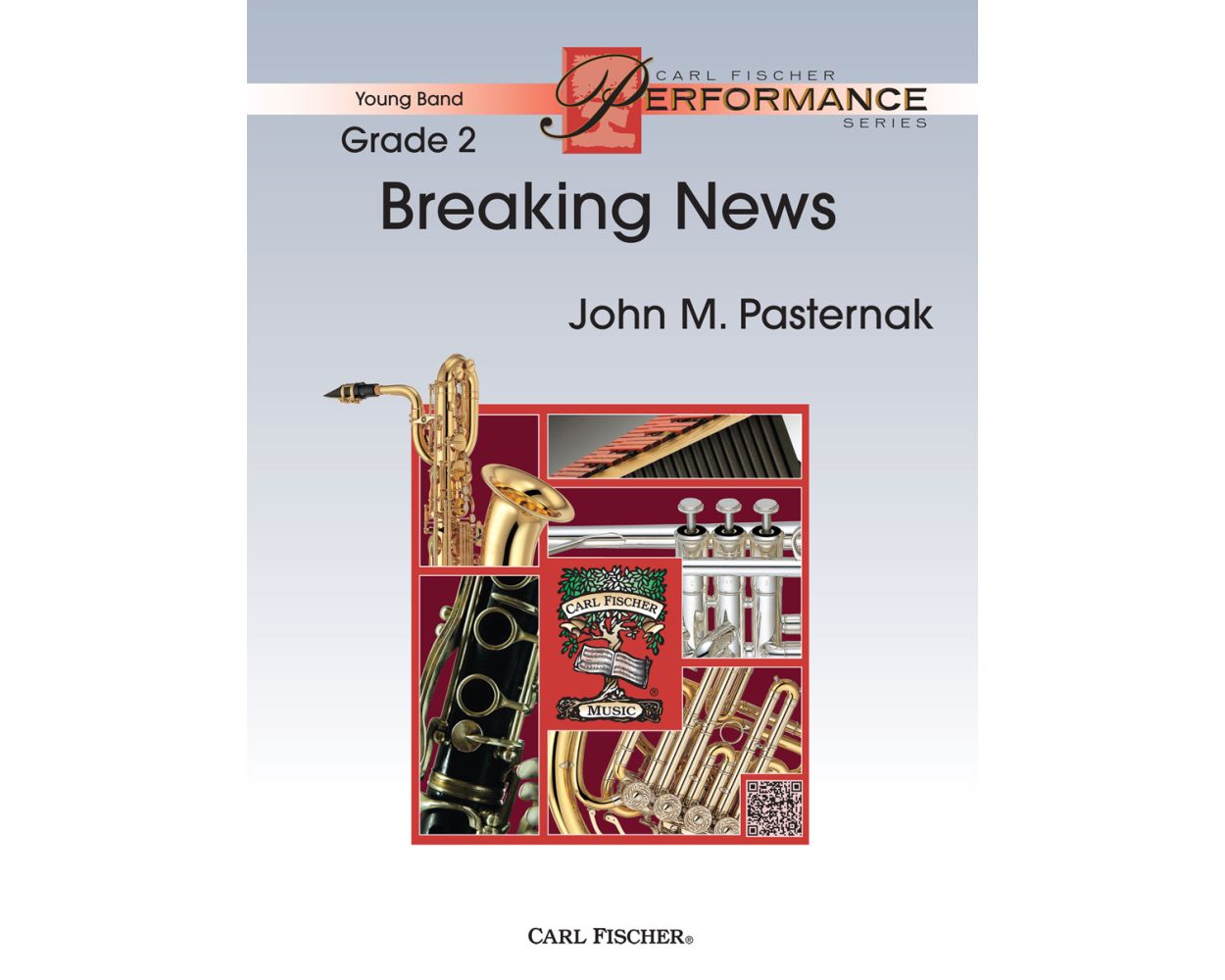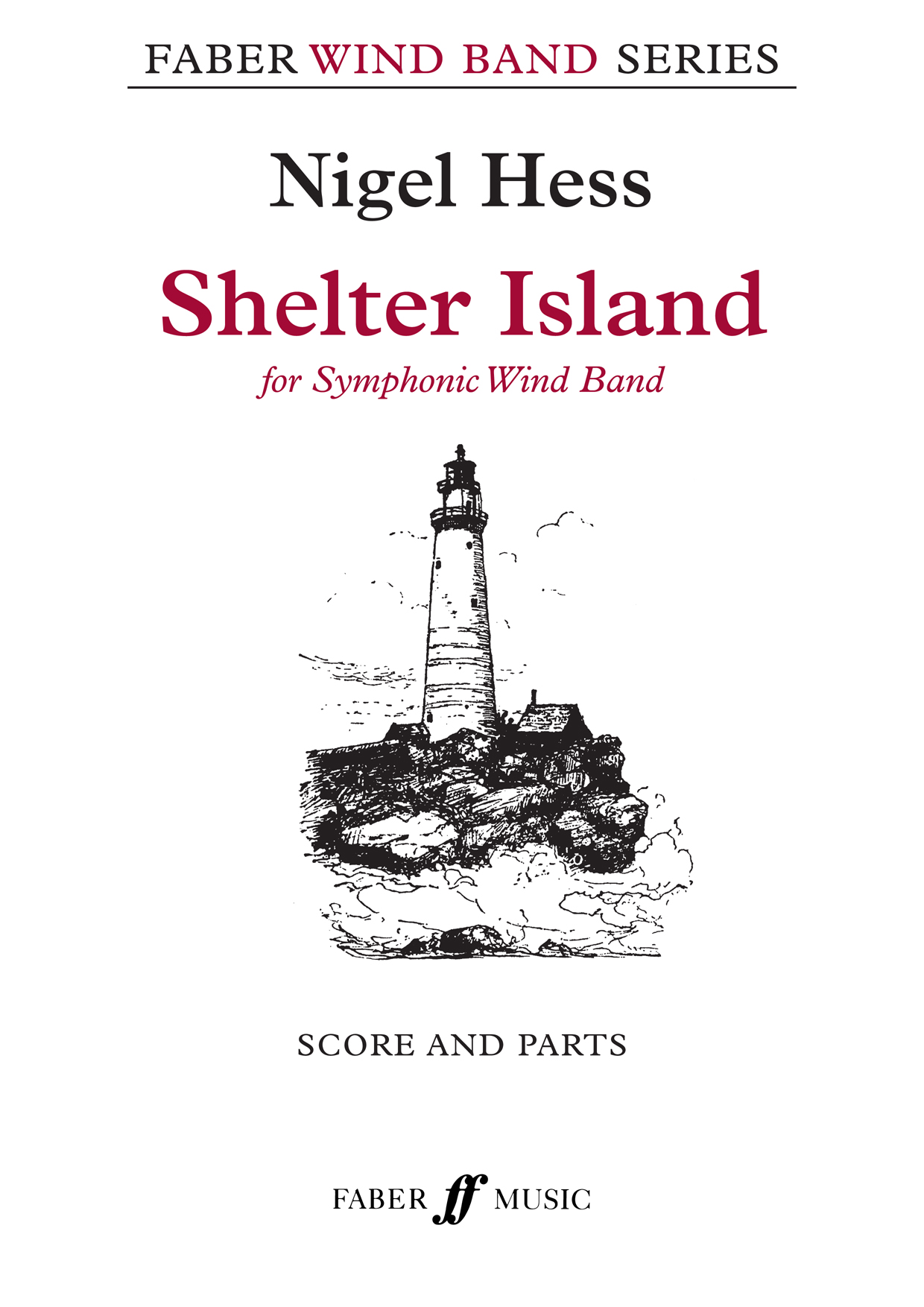Results
-
 £79.50
£79.50In Stillness - Kenley Kristofferson
by Kenley Kristofferson reaches for that which is greater than ourselves. It may be one god or many gods, or it may be greatness of the past or future, but it is the light that is just beyond our mortal reach. This piece starts slowly and grows in intensity over time until the glorious climax, after which it relaxes in tone and volume before reaching a short final section of quiet tension. This ends with warm tonic chord, signifying the light that greets all of us at the end.
Estimated dispatch 3-5 working days
-
£69.95
Keep Me Praising - Score and Parts - Andrew Mackereth
Program NotesBased on the song melodies "Give Me Joy in My Heart, Keep Me Praising" and "Praise, My Soul the King of Heaven," the music is largely light-hearted in nature with some florid semi-quaver work overlaying the melodic lines and some interesting interplay between the two selected tunes. We believe that it will have wide appeal both to players and listeners.Andrew Mackareth originally wrote this piece for The Salvation Army's Symphonic Wind Ensemble, but it was first published in a rescored version for brass band. We are please to be able to release it in its original form in this collection of wind band music.
Estimated dispatch 7-14 working days
-
£13.95
Keep Me Praising - Score only - Andrew Mackereth
Program NotesBased on the song melodies "Give Me Joy in My Heart, Keep Me Praising" and "Praise, My Soul the King of Heaven," the music is largely light-hearted in nature with some florid semi-quaver work overlaying the melodic lines and some interesting interplay between the two selected tunes. We believe that it will have wide appeal both to players and listeners.Andrew Mackareth originally wrote this piece for The Salvation Army's Symphonic Wind Ensemble, but it was first published in a rescored version for brass band. We are please to be able to release it in its original form in this collection of wind band music.
Estimated dispatch 7-14 working days
-
£79.95
Lakeside Drawings - Score and Parts - Richard Phillips
Program NotesOnce a year, my wife and I like to visit the beautiful Lake District in the northwestern sector of England in the county of Cumbria. It has been a place of much inspiration for many composers over the years and when amidst the rolling countryside, the lofty mountain peaks, it is no wonder. Lakeside Drawings was started when I visited the Lakes and seeks to reflect the contours of the many mountain peaks through the sometimes soaring melodic lines of the composition. It is a piece based on tunes reflecting the aspect and also of the mindset of the many walkers who have scaled the mountains to achieve an ambition of reaching a summit. Once reached, a glorious view is a prize worth every hour of tiring ascent.-Richard Phillips
Estimated dispatch 7-14 working days
-
£15.95
Lakeside Drawings - Score only - Richard Phillips
Program NotesOnce a year, my wife and I like to visit the beautiful Lake District in the northwestern sector of England in the county of Cumbria. It has been a place of much inspiration for many composers over the years and when amidst the rolling countryside, the lofty mountain peaks, it is no wonder. Lakeside Drawings was started when I visited the Lakes and seeks to reflect the contours of the many mountain peaks through the sometimes soaring melodic lines of the composition. It is a piece based on tunes reflecting the aspect and also of the mindset of the many walkers who have scaled the mountains to achieve an ambition of reaching a summit. Once reached, a glorious view is a prize worth every hour of tiring ascent.-Richard Phillips
Estimated dispatch 7-14 working days
-
£69.95
The Proclamation of Christmas - Score and Parts - Stephen Bulla
Program NotesOriginally written as the 'show opener' for one of The Salvation Army's spectacular annual Christmas Carol concerts in London, and premiered by The International Staff Band, Stephen Bulla's overture The Proclamation of Christmas is an extended work that features a number of popular Christmas tunes, including Hark The Herald Angels Sing, Ding Dong Merrily on High, and The First Nowell. There are also two slightly less well-known tunes that are linked to the carols - While Shepherds Watched and Angels from the Realms of Glory - and the piece concludes with a final flourish from O Come, All Ye Faithful.Its dramatic opening and imaginative structure make it a rewarding piece to rehearse and perform, and it certainly fulfills all the requirements of a Christmas show opener! So, we firmly believe that this overture will be a popular addition to Christmas repertoire for concert band in the same way as it was in its original version for brass band.
Estimated dispatch 7-14 working days
-
£13.95
The Proclamation of Christmas - Score only - Stephen Bulla
Program NotesOriginally written as the 'show opener' for one of The Salvation Army's spectacular annual Christmas Carol concerts in London, and premiered by The International Staff Band, Stephen Bulla's overture The Proclamation of Christmas is an extended work that features a number of popular Christmas tunes, including Hark The Herald Angels Sing, Ding Dong Merrily on High, and The First Nowell. There are also two slightly less well-known tunes that are linked to the carols - While Shepherds Watched and Angels from the Realms of Glory - and the piece concludes with a final flourish from O Come, All Ye Faithful.Its dramatic opening and imaginative structure make it a rewarding piece to rehearse and perform, and it certainly fulfills all the requirements of a Christmas show opener! So, we firmly believe that this overture will be a popular addition to Christmas repertoire for concert band in the same way as it was in its original version for brass band.
Estimated dispatch 7-14 working days
-
£55.00
Shelter Island - Nigel Hess
Shelter Island is the first movement of East Coast Pictures. It is a depiction of the Shelter Island itself, a few hours drive east of New York. In the summer it becomes a crowded tourist trap; but in the winter it is gloriously deserted and bravely faces the onslaught of the turbulent Atlantic, shrouded in sea mists and driving rain. This 'picture' is a fond memory of a winter weekend on Shelter Island. East Coast Pictures was commissioned by the British Youth Wind Orchestra with funds from the National Westminster Bank plc. These three short 'pictures' were inspired by several visits to a small part of the American East Coast, an area that provides great extremes in the geography and the people.
In stock: Estimated delivery 1-3 days
-
 £53.00
£53.00Breaking News - John Pasternak
Has a monster started terrorizing your city? Has the mayor been re-elected? We've got Breaking News! Find out what the news is about at the end of this fun piece for young band. The title says it all in composer John Pasternak's new piece reminiscent of a news program theme. It is exciting, unique, and students will love to play it again and again.
Estimated dispatch 12-14 working days
-
 £53.00
£53.00Power - Harold Bennett
This is one of Harold Bennett's (pseudonym of Henry Fillmore) lesser-known marches, but that is no indication of its quality. It is a 6/8 march in standard march form but what is unique about this classic from the original Bennett Band Book is that it is one of the few Bennett marches that includes a "break strain." This makes it a great introduction for younger students to prepare them to play the more challenging marches of Fillmore, Sousa, and others.
Estimated dispatch 12-14 working days

